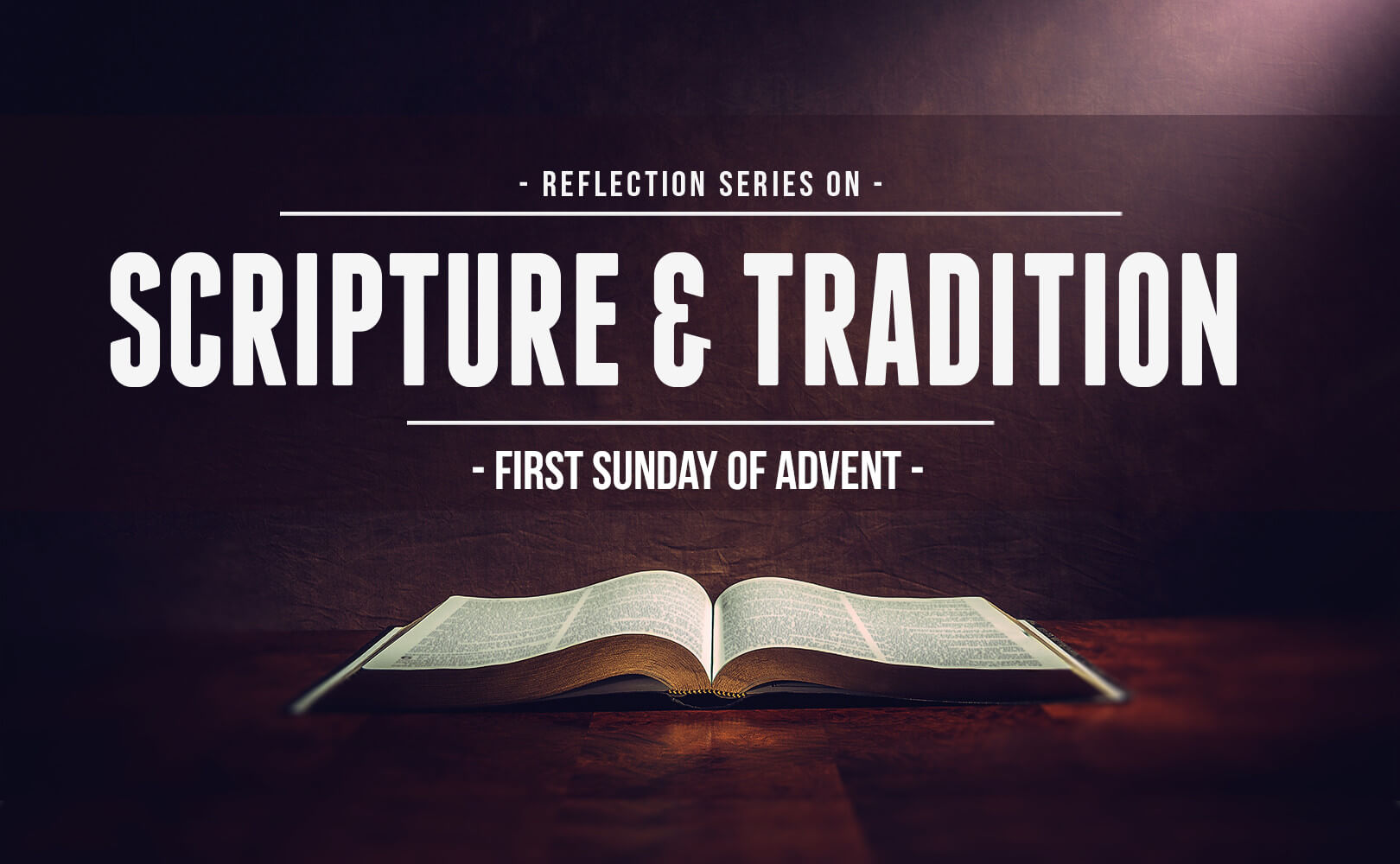Epistle: Romans 13:11-14
Gospel: Luke 21:25-33
Stir up Thy power, we beseech Thee, O Lord, and come: that from the threatening dangers of our sins, by Thy protection we may deserve to be rescued, and be saved by Thy deliverance.
– From the Collect for the First Sunday of Advent
The First Sunday of Advent is the first Sunday of the liturgical year, yet the readings for this Sunday contain the same themes as last week’s readings for the Last Sunday after Pentecost.
Last week we read Christ’s eschatological (i.e., concerning last things) discourse found in St. Matthew’s Gospel. This Sunday we read from a similar passage in the Gospel of St. Luke. In this passage, Jesus is urging his disciples always to be on watch—to recognize the “signs” so that we might know when the Son of man is coming. This attitude of watchfulness permeates the entire Advent season.
The word “advent” means the arrival of a notable person or thing, and the season of Advent points to the coming of the most notable person of them all: Jesus Christ. Advent points to three “comings” of Christ: (1) his first coming as a babe in Bethlehem; (2) his coming into our hearts at our Baptism; and (3) his coming as the Great Judge at the End of the World. Further, he also comes to us at every Mass to nourish and strengthen us as we wait to see him face-to-face one day.
In each case, Christ’s coming is a reminder that our salvation is always initiated by him. We do not go to him; he comes to us. We have no power to save ourselves, so we must allow him to come to us.
St. Paul tells us in Sunday’s Epistle that “our salvation is nearer than when we believed.” Of course, this means that every moment we are closer to meeting him at the end of our lives than before. But it also demonstrates that all of time is directed towards a consummation. The Christian religion, unlike some religions, does not believe time is a loop which we repeat over and over again. No, all of human history is directed toward that day when Christ will return and we will hear a great voice proclaim, “Behold, the dwelling of God is with men. He will dwell with them, and they shall be his people, and God himself will be with them; he will wipe away every tear from their eyes, and death shall be no more, neither shall there be mourning nor crying nor pain any more, for the former things have passed away” (Rev 21:3-4).
During Advent we should reflect on the history of salvation that led to the coming of the Messiah. For centuries God prepared His people for the Incarnation of His Son; often His people would rebel and reject Him, but God was always faithful to His promises. He would send kings and prophets and priests to turn the Israelites back to Him. Then finally, in the fullness of time, He sent His Son, born of a woman.
Likewise, God is faithful to His promises today and He is preparing us for glory in Heaven for eternity. Even when we turn from Him in rebellion, He pours out His grace in Baptism; He sends His Son to us in the appearance of bread and wine; he forgives us in the Sacrament of Confession. God comes to us. In this way, every day is an “Advent,” as we open ourselves to His coming into our hearts today, but also await Christ’s glorious and final coming at the End of Time. During this liturgical season of Advent, let us intensify our preparations for the coming of Christ to us.


